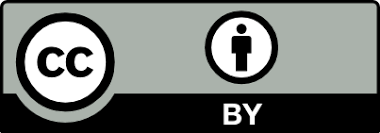UNCHARTED WATER
INDONESIA’S COPYRIGHT CHALLENGES IN THE DIGITAL AGE
DOI:
https://doi.org/10.54934/ijlcw.v4i1.119Keywords:
Digital Era, Copyright Infringement, Piracy, Law Enforcement, Indonesia, Digital Copyright, digital technologies, derechos de autor digitales, Era digital, tecnología digital, infracción de derechos de autor, aplicación de la ley, piratería, 数字版权, 数字时代, 数字技术, 执法, 盗版Abstract
Digital technology has complicated copyright protection, particularly in Indonesia, where weak laws, poor enforcement, and low awareness fuel piracy. Modernizing regulations, improving enforcement, and promoting education about intellectual property rights are essential to fostering innovation, safeguarding creators, and supporting the creative economy in the digital era. This study evaluates Indonesia's copyright framework in the digital era, focusing on its legal adaptability, enforcement effectiveness, public awareness, economic impacts, and potential insights from global best practices to enhance the creative economy and tackle digital piracy challenges. This study employs comparative hermeneutics, including legal analysis of Indonesia's copyright laws, international benchmarks, and case studies of successful anti-piracy efforts to study enforcement mechanisms and economic impacts to offer actionable insights for effectively adapting Indonesia's copyright framework. The authors conclude that Indonesia must strengthen its legal framework; only by aligning with global standards like TRIPS can Indonesia safeguard creators’ rights, enhance enforcement, and ensure competitiveness in the digital economy.
_____
AGUAS DESCONOCIDAS: LOS RETOS DE LOS DERECHOS DE AUTOR EN INDONESIA EN LA ERA DIGITAL
La tecnología digital ha complicado la protección de los derechos de autor, especialmente en Indonesia, donde la debilidad de las leyes, la aplicación deficiente y la escasa concienciación fomentan la piratería. Modernizar las regulaciones, mejorar la aplicación y promover la educación sobre los derechos de propiedad intelectual son esenciales para fomentar la innovación, proteger a los creadores y apoyar la economía creativa en la era digital. Este estudio evalúa el marco de derechos de autor de Indonesia en la era digital, centrándose en su adaptabilidad legal, la eficacia de la aplicación, la concienciación pública, el impacto económico y las posibles perspectivas de las mejores prácticas globales para impulsar la economía creativa y abordar los retos de la piratería digital. Este estudio emplea hermenéutica comparativa, incluyendo un análisis legal de las leyes de derechos de autor de Indonesia, referentes internacionales y estudios de caso de iniciativas exitosas contra la piratería para estudiar los mecanismos de aplicación y el impacto económico, con el fin de ofrecer perspectivas prácticas para adaptar eficazmente el marco de derechos de autor de Indonesia. Los autores concluyen que Indonesia debe fortalecer su marco legal. Solo alineándose con estándares globales como el Acuerdo sobre los ADPIC, Indonesia podrá salvaguardar los derechos de los creadores, mejorar su aplicación y garantizar la competitividad en la economía digital.
_____
未知领域:数字时代印度尼西亚的版权挑战
数字技术使版权保护变得复杂,尤其是在印度尼西亚。该国法律薄弱、执法不力、意识低下,盗版现象猖獗。在数字时代,更新法规、加强执法和促进知识产权教育对于促进创新、保护创作者和支持创意经济至关重要。本研究评估了数字时代印度尼西亚的版权框架,重点关注其法律适应性、执法有效性、公众意识、经济影响以及借鉴全球最佳实践的潜在经验,以促进创意经济的发展并应对数字盗版挑战。本研究采用比较诠释学,包括对印度尼西亚版权法的法律分析、国际基准以及成功的反盗版案例,以研究执法机制和经济影响,从而为有效调整印度尼西亚的版权框架提供可行的建议。作者得出结论,印度尼西亚必须加强其法律框架;只有与《与贸易有关的知识产权协议》(TRIPS) 等全球标准接轨,印度尼西亚才能保障创作者的权利,加强执法,并确保在数字经济中的竞争力。
References
Arman, A. H., & Kahkeshan, S. (2024). Comparative Study of IP Law Enforcement in Developing vs. Developed Countries: Identifying Primary Challenges and their Implications. JLSR 10505, DOI: 10.55662/JLSR.2024.10505.
Jaynes, A. (2009). Why Intellectual Property Rights Infringement Remains Entrenched in the Philippines. Pace Int'l L. Rev. (21) 1, pp. 55-135. 102. DOI: https://doi.org/10.58948/2331-3536.1035. Available at: https://digitalcommons.pace.edu/pilr/vol21/iss1/3.
BBC News Indonesia. (2010) The Republic of Indonesia is the worst IPR violator in Asia
BRIN. (2023). Lindungi Hak Cipta, BRIN Kaji Kasus Pelanggaran di Era Digital.
Coda. (2019). Estimated Amount of Damage from Pirated Japanese Content Distributed Online in 2019.
DJKI. (2024). Sejarah Perkembangan Perlindungan Kekayaan Intelektual,
DJKI (2024). Pelindungan Hak Cipta di Era Digital: DJKI Intensifkan Penegakan Hukum dan Edukasi Publik.
DJKI. (2022). Indonesia Komitmen Lindungi Kekayaan Intelektual Melalui Satgas OPS.
EUR-Lex. (2001). Directive 2001/29/EC of the European Parliament and of the Council of 22 May 2001 on the harmonization of certain aspects of copyright and related rights in the information society.
EUIPO Project Team. (2021). Online copyright infringement in the European Union: Music, films and TV (2017–2020), trends and drivers. European Union Intellectual Property Office.
Ginsburg, J. C. (1990). A Tale of Two Copyright statutes: The development of the U.S. and U.K. copyright law. Columbia Law Review, 90 (5), 1337-1416.
Global Times. (2021). Chinese Entertainment Industry Moves to Combat Piracy and Strengthen IP Rights.
International Trade Administration. (2024). Protecting Intellectual Property.
Itsjev. (2019). Lepas Perfilman Indonesia dari Cekikan Parasit Bernama Pembajakan,
Rizal, J. G., & Hardiyanto, S. (2021) Berkaca Dari Kritik Tere Liye Soal Buku Bajakan, Ini Faktor Yang Mendorong Pembajakan Buku Kerap Terjadi.
Ng, J. (2021). Combating Digital Piracy in China and its Unintended Side Effects.
Palfrey, J. G., Gasser, U., Simun, M., & Barnes, R. Youth, Creativity, and Copyright in the Digital Age (2009). Berkman Center Research Publication No. 2009-05.
Hua, J. J. (2014). Copyright Law Changes and Developments in Digital Network Era. In: Toward A More Balanced Approach: Rethinking and Readjusting Copyright Systems in the Digital Network Era. Springer, Berlin, Heidelberg.
Walsh, O. (2024). Shutting Down the Pirates: How The Kokoa TV Case Strengthens South Korea’s Content Creation Industry.
Pedley, P. (2007). Digital Copyright. Facet Publishing. London. 1
Pedley, P. (2007). Digital Copyright. Facet Publishing. London. 2
Goldstein, P. (2001). International Copyright: Principles, Law, and Practice. Oxford University Press.
Samuelson, P. (1999). The U.S. Digital Millennium Copyright Act and the Geneva Convention. International Review of Intellectual Property and Competition Law, 30 (1), 1-25.
Harrison, S., Sakudo, M., Eom, T. Y., & Jeong, S. (2023). Operation Anime: The Global Crackdown on Pirated Japanese Entertainment, Asia Pacific Foundation of Canada. 2023
Bar-Ziv, S., & Elkin-Koren, N.. (2018). Behind the Scenes of Online Copyright Enforcement: Empirical Evidence on Notice & Takedown Connecticut Law Review. 402.
Baruzzi, S. (2021). China’s Copyright Law Amended: Key Changes
Letunic, S. & Dragicevic, M. (2014). Importance of Non-Economic Factors for Economics, Chapter 11 in DAAAM International Scientific Book 2014. 145-152, B. Katalinic (Ed.). Published by DAAAM International. ISBN 978-3-901509-98-8. ISSN 1726-9687. Vienna, Austria DOI: 10.2507/daaam.scibook.2014.11.
Lindsey, T., Damian, E., Butt, S., & Utomo, T. S.. (2019). Hak Kekayaan Intelektual Suatu Pengantar. Asian Law Group & Alumni. Bandung. 93
Power, T., & Warburton, E. (2022). The decline of Indonesian democracy in The 2022 Annual Report of Indonesian National Commission on Human Rights 2022 HAM RI.
Downloads
Published
How to Cite
Issue
Section
License
Copyright (c) 2025 Zuliarti Wa Ode, Fitriah Faisal

This work is licensed under a Creative Commons Attribution 4.0 International License.















